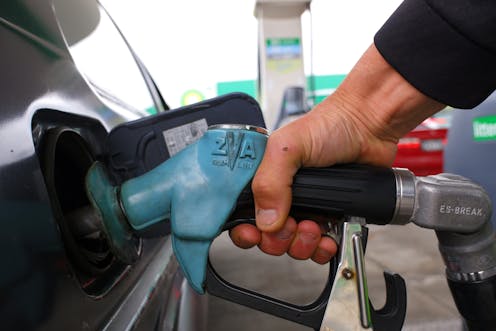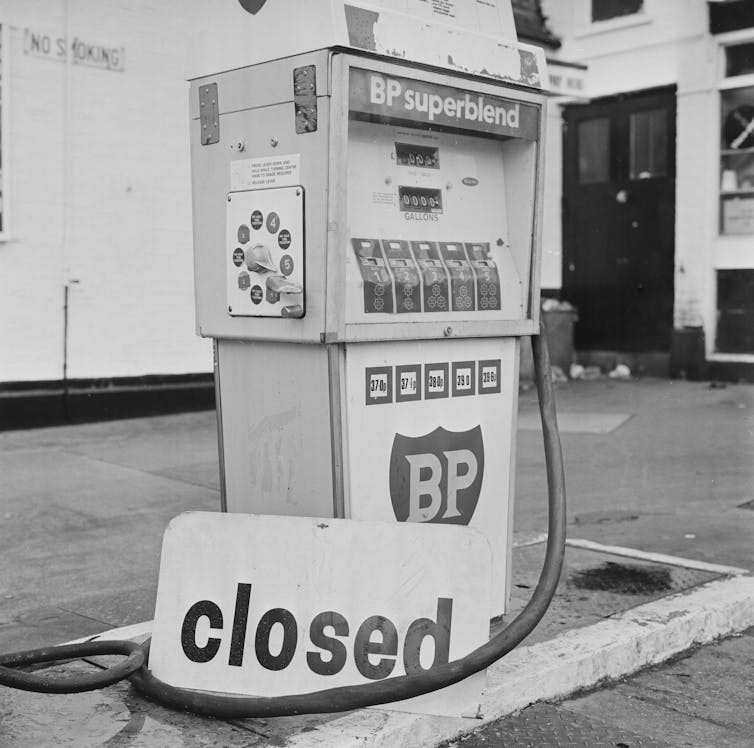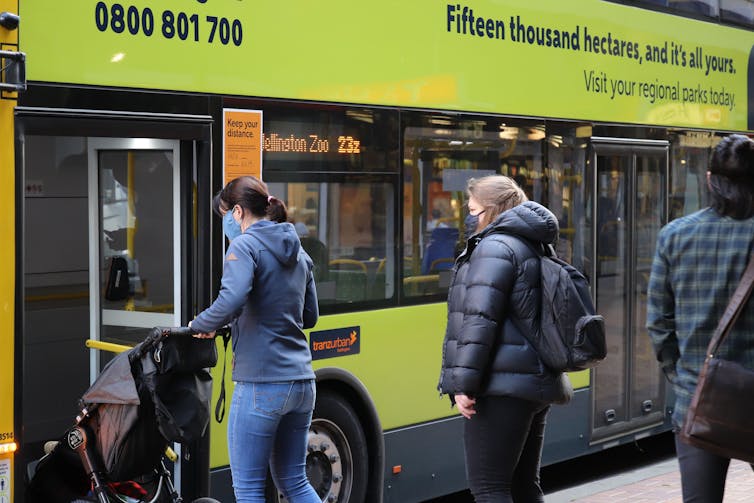Source: The Conversation (Au and NZ) – By Robert Hamlin, Senior Lecturer in Marketing , University of Otago

As global petrol prices skyrocket and governments step in to reduce the cost, is there a point when car owners will say enough is enough and opt for a different kind of transport? If history is anything to go by, probably not.
Over the past few weeks, New Zealand drivers received a nasty shock as the price of fuel rose to over NZ$3 a litre, before dropping back to around $2.60 after the government temporarily cut fuel taxes by 25 cents a litre and the market eased. In Australia, the government has promised to implement some form of cost cutting measures in the upcoming budget.
Despite these temporary actions, greater price volatility has been predicted. And there is no doubt fuel prices are on the community’s radar. But will rising fuel prices change behaviour? Unfortunately, the available data doesn’t tell us much.
Pain at the pump doesn’t change behaviour
Fuel prices change on a weekly or daily basis and are reported over the same time frame, while robust fuel consumption statistics are only publicly available for longer time periods.
This makes consumer reaction to sudden price hikes hard to study, unless the price hike is a long-term trend rather than a short-term spike. It’s not yet clear which of these two scenarios is confronting motorists today.

Evening Standard/Getty Images
Therefore, in order to study consumer reaction to a long-term rise in fuel prices, one has to go back to the oil crisis of 1973 when oil prices abruptly quadrupled and stayed that way for more than a year.
So, what do motorists do when they are confronted with a massive and sustained increase in petrol prices? As seen during the 1973 crisis and beyond, the consistent answer to this question is “not much”.
Read more:
Why Russian gas could disrupt Germany’s plan for a bolder climate agenda
In the decades after the oil crisis, the number of cars in New Zealand continued to rise and the country is now ranked fourth in the OECD for car ownership.
While some reduction occurs over the longer term, petrol consumption appears to be “inelastic” to price changes. In economic parlance, an inelastic good is one where price does not significantly affect demand because there are either few good alternatives, as with petrol and tobacco, or the product is necessary, such as medicines.

Lynn Grieveson/Getty Images
A complex market driven by petrol
That said, the general trends in fuel consumption disguise numerous complexities within the market.
Petrol consumers range from millionaire Porsche drivers getting away to their holiday home, to contract cleaners proceeding to their next gig in a rusty Nissan Micra on its last legs.
A US study in 2019 divided this range of households into two groups to study their behaviour separately: “hand to mouth” and “non-hand to mouth” consumers.
Hand-to-mouth households do not reduce fuel consumption because they are simply not able to do so. Their petrol consumption is already reduced to non-discretionary use only, which is usually related to work, and this expenditure cannot be reduced without also reducing income.
Often the “gig” work that such households rely on is inflexible and not public transport friendly. Buying an electric vehicle (EV) in such circumstances is a fiscal impossibility.
Non-hand-to-mouth households do not reduce their expenditure on fuel because it supports activities and benefits that are usually of far higher value than the additional cost imposed by a rise in fuel prices.
Cheap public transport is not a perfect solution
For example, I commute 15km to work each day. This might use about three litres of fuel (I’m not really sure, which is a comment in itself). A rise from $2 to $3 increases my fuel cost from $6 to $9 a day. The cost of public transport for this return trip has gone down from $6 to $3.
I could therefore use public transport, which will save me $6 a day. However, a round trip in a car takes 40 minutes, while a public transport round trip takes over three hours. How much does one value two hours and twenty minutes a day?
Even at the minimum wage, it’s worth around $50 to me, which means fuel might well have to rise to more than $15 a litre to get me out of the car.
This analysis and logic can be applied in varying forms to almost any non-hand-to-mouth household. A 2007 government-funded study found public transport usage in New Zealand was influenced less by price than other factors.
Read more:
As petrol prices rise, will carbon emissions come down?
Given this, it’s a fairly safe bet that increasing fuel costs will not significantly reduce consumption and oil companies are unlikely to face significant consumer backlash.
Instead, household resources will be redirected away from elastic costs, such as food, to pay for the increased cost of fuel. Upmarket cafes that serve the non-hand-to-mouth households may feel a slight chill as a red line is reluctantly drawn through the daily afternoon latte.
However, the food banks that already support hand-to-mouth households are likely to see a far more drastic effect as they are called on to bridge the increasingly unbridgeable gap between non-discretionary expenditure and minimum income within these stressed communities.
It’s a crisis, whatever the prime minister might say.
![]()
Robert Hamlin does not work for, consult, own shares in or receive funding from any company or organization that would benefit from this article, and has disclosed no relevant affiliations beyond their academic appointment.
– ref. No silver lining for climate change: pain at the petrol pump will do little to get us out of our cars – https://theconversation.com/no-silver-lining-for-climate-change-pain-at-the-petrol-pump-will-do-little-to-get-us-out-of-our-cars-179190







